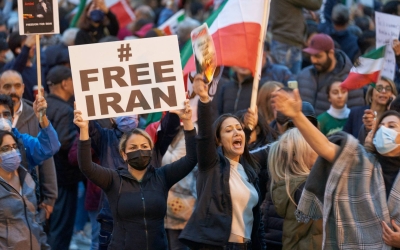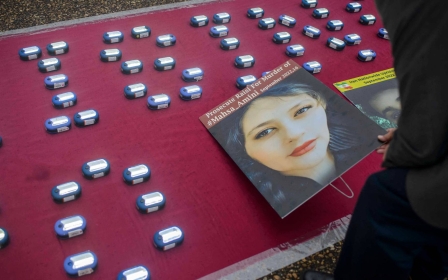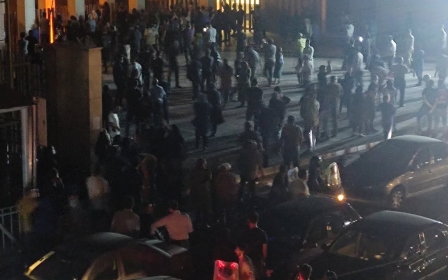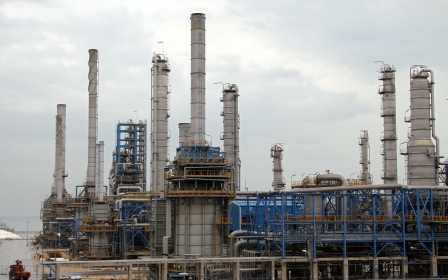Iran protests: US sanctions seven officials over crackdown

The United States imposed sanctions on seven senior Iranian officials on Thursday over what it called the "violent suppression of protests" following the death of 22-year-old Mahsa Amini in police custody.
The sanctions targeted Interior Minister Ahmad Vahidi, Communications Minister Eisa Zarepour, and five senior security officials "for the shutdown of Iran's internet access and the continued violence against peaceful protesters", the US Treasury said.
Protests have raged across Iran since 16 September when Amini, a 22-year-old Kurdish woman, died after she sustained severe injuries while in police custody.
Iranian authorities have denied that Amini was beaten, but her case has mobilised demonstrations across the country and triggered global outrage.
Dozens of protesters have reportedly been killed by security forces, with the Oslo-based Iran Human Rights group reporting that by 2 October, 133 people had been killed.
"The rights to freedom of expression and of peaceful assembly are vital to guaranteeing individual liberty and dignity," US Treasury official Brian Nelson said in a statement.
"The United States condemns the Iranian government’s Internet shutdown and continued violent suppression of peaceful protest and will not hesitate to target those who direct and support such actions."
US Secretary of State Antony Blinken said on Thursday that the latest sanctions "demonstrate that the United States stands with the brave citizens and the brave women of Iran who right now are demonstrating to secure their basic rights".
On Monday, Iran's Supreme Leader Ayatollah Ali Khamenei gave his full backing to security forces confronting protesters.
Although Khamenei said he was "deeply heartbroken" by the death of Amini, which he labelled a “tragic incident", he claimed the demonstrations and "rioting" had been "planned".
"These riots and insecurities were designed by America and the Zionist regime, and their employees," he told a gathering of police students, referring to Israel.
Middle East Eye propose une couverture et une analyse indépendantes et incomparables du Moyen-Orient, de l’Afrique du Nord et d’autres régions du monde. Pour en savoir plus sur la reprise de ce contenu et les frais qui s’appliquent, veuillez remplir ce formulaire [en anglais]. Pour en savoir plus sur MEE, cliquez ici [en anglais].





